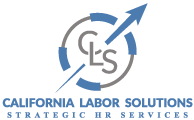Although there are clear definitions and legal guidance for harassment and discrimination, according to the Association of Workplace Investigators, bullying conduct is not typically legally prohibited and is often more subjective behavior, which makes it difficult to determine whether there has been bullying behavior at the workplace and what the appropriate corrective actions are.
Therefore, this article guides California employers on identifying and addressing bullying behavior within an organization.
Workplace Bullying Investigations
To effectively address bullying behavior in the workplace and conduct employee complaint investigations, it is necessary to refer to the company’s policy regarding workplace bullying. Additionally, employees may perceive other behaviors as bullying even if they are not explicitly mentioned in the policies. Therefore, due to the lack of legal control, investigators may need to refer to general principles of fair human interaction and management.
While the investigator’s primary role is to determine what events occurred, it needs to be clear to the investigator and the employer whether the investigation will require determining if the alleged conduct amounts to bullying. Nonetheless, each complaint should be meticulously reviewed to understand the complainant’s concerns and whether the alleged behavior could be considered bullying.
During a workplace investigation, it is not uncommon for alleged perpetrators to deny any wrongdoing. However, a skilled investigator can determine whether an individual has engaged in behaviors that add up to bullying.
Actions Against Bullying Behavior in the Workplace
Studies indicate that HR professionals and their employers often fail to address bullying complaints effectively. For instance, in a study by Gary Namie and Pamela Lutgen-Sandvik, 45% of respondents perceived that the employer left their complaints unaddressed, and 18% perceived that the employer made the situation worse. Therefore, employees who submitted complaints in the workplace experienced dissatisfaction with HR due to attempts made by HR to reframe situations and provide temporary solutions rather than address root issues.
Although bullying behavior might not be explicitly illegal in many jurisdictions, employers should take reasonable steps to stop its recurrence and overcome its negative effects in the workplace. Only having a policy against it and conducting training will not minimize bullying behavior in the workplace if complaints are trivialized, investigations are not thorough, impartial, and unbiased, and employees are not held accountable for what is covered during the training.
Employers should consider implementing the following best practices to address bullying behavior in the workplace:
- Anonymous employee surveys conducted by third parties help identify organizational risk factors and employees’ needs to recover from bullying incidents. Employers can implement changes based on the survey findings.
- Coaching employees engaging in bullying behavior in effective communication strategies provides insight into how other employees perceive their conduct and the impact their behavior has upon targets and witnesses.
- Training programs on assertiveness, bystander intervention, conflict management, and positive communication benefit all workforce levels, including managers, supervisors, and employees. Managers should also receive training in holding employees accountable for positive performance and behavior, coaching employees who step out of line, and mediating conflicts to foster a culture intolerant of bullying and harassment.
Why choose California Labor Solutions?
California Labor Solutions (CLS) is one of the only HR firms licensed* to conduct workplace investigations in California. We serve private businesses and public-sector organizations throughout the state. We have conducted hundreds of neutral, objective, and unbiased workplace investigations for employee complaints relating to allegations of discrimination, harassment, retaliation, and various types of employee misconduct with the utmost quality, detail, and efficiency.
*California Private Investigator License Number 26311.
Disclaimer:
Please note that the updates, advisories, and regulations that we receive from the promulgating agency often contain ambiguities and/or are often amended, modified, or updated. This material/article/email does not contain any legal advice. The information and opinions expressed herein are based on our reasonable interpretation of the issuing agency’s publication at the time the opinion is expressed and is therefore subject to change based on further developments. The effect of the opinions expressed may be different based on your particular circumstances, and it is recommended that you not rely upon these general opinions prior to obtaining a consultation with your legal and/or financial advisors.



